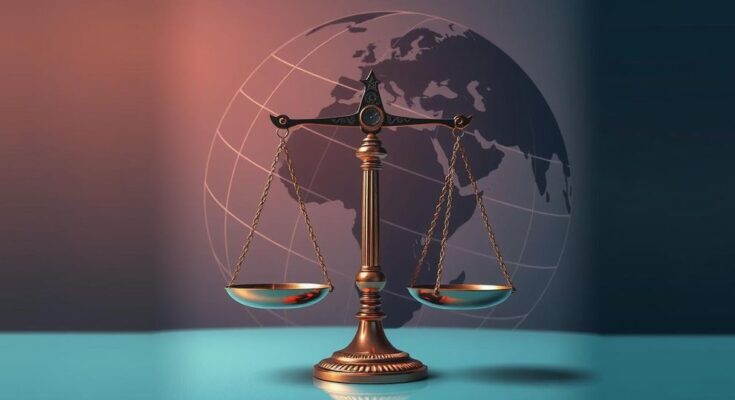European Commission President Ursula von der Leyen will visit India to discuss preventing restricted technologies from India from reaching Russia, while also addressing high tariffs affecting trade agreements. Recent reports indicate India as a significant supplier of dual-use goods to Russia. The discussions occur against the backdrop of rising geopolitical complexities and trade tensions, particularly influenced by US policies.
European Commission President Ursula von der Leyen is expected to address the issue of preventing restricted technologies from countries like India from reaching Russia during her visit to India starting Thursday. Finland’s ambassador to New Delhi, Kimmo Lähdevirta, emphasized that Indian enterprises should refrain from circumventing sanctions that prohibit the supply of electronic goods to Russia, which could have both commercial and military uses. He remarked that it is the responsibility of India as a nation to ensure that such materials do not assist Russia’s military efforts in Ukraine.
In addition to sanctions, discussions will involve India’s elevated tariffs on products such as automobiles and wines as part of the ongoing negotiations for a free trade agreement. According to an EU official, von der Leyen and her team seek improved market access, although Lähdevirta warned that comprehensive trade agreements are unlikely without considerable reductions in both tariff and non-tariff barriers.
Recent reports indicate that India has become the second-largest supplier of dual-use technologies to Russia, trailing only behind China, which complicates efforts to obstruct the supply chain of materials for President Vladimir Putin’s military operations. In this context, EU and Indian sanctions envoys convened last month to explore strategies for averting such supplies from reaching Russia.
As a significant trade ally, Russia serves as a major source of weapons and crude oil for India. Despite not officially condemning Russia’s invasion of Ukraine, India advocates for diplomatic solutions to the conflict. Officials from India have stated that the nation adheres to UN sanctions, continuously informing companies of export regulations, though they assert no violations have been identified thus far.
The potential for a trade deal between the EU and India is further complicated by perceived threats from President Donald Trump regarding potential tariffs on various countries. Prime Minister Narendra Modi, who previously engaged with President Trump, returned from a recent summit with concerns regarding impending duties on Indian exports and requests for increased purchases of US goods, from energy to advanced weaponry. The envoy noted the evolving geopolitical landscape, emphasizing the increased necessity for collaboration between India and the EU, especially given the changing dynamics over the past decade.
The upcoming discussions between the European Union and India will focus on key issues, including sanctions against Russia and trade agreements. As India works to manage its relationship with Russia while adhering to international sanctions, the complexity surrounding trade tariffs poses additional challenges. Enhanced cooperation between India and the EU appears crucial in navigating the current geopolitical landscape amidst external pressures and evolving diplomatic expectations.
Original Source: www.business-standard.com




